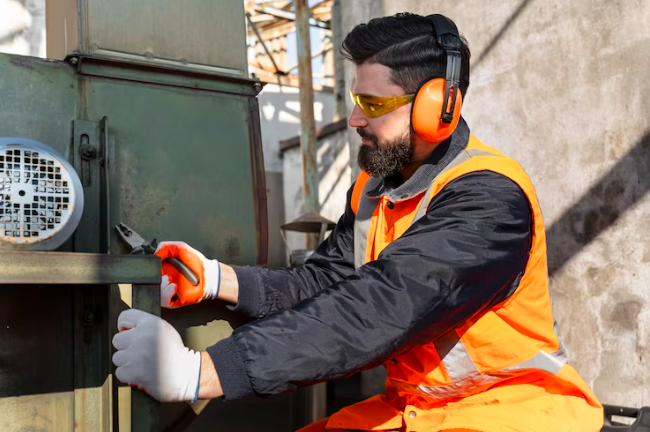Industrial chillers are the backbone of processes that demand precision and efficiency. A robust chiller maintenance regimen is necessary to ensure these workhorses deliver optimal performance. In this exploration, we’ll dive into the intricacies of chiller maintenance. We will understand its importance and outline best practices. We will emphasise its role in enhancing both longevity and performance.
The Significance of Chiller Maintenance
At the heart of any industrial chillers lies a complex assembly of components designed to regulate temperatures preciously. Regular maintenance is the key to sustaining the chiller’s efficiency. It prevents unexpected breakdowns and extends its operational lifespan. Neglecting maintenance jeopardises performance. It also incurs higher operational costs due to inefficiencies.
Understanding the Components: A Chiller’s Anatomy
From compressors and condensers to evaporators and controls, each component plays a crucial role in the functionality. Maintenance should encompass all these elements to ensure the chiller operates. This delivers consistent and reliable cooling.
Preventive Maintenance vs. Reactive Repairs
Waiting for a chiller to malfunction before taking action is costly. It can lead to production downtime. Preventive maintenance involves routine inspections, cleaning, and adjustments to address potential issues before they escalate.
The Role of Regular Inspections
Routine inspections are the cornerstone of an effective chiller maintenance plan. Trained technicians conduct thorough examinations of the entire water chiller system. They check for wear and tear, leaks, and any anomalies in performance. Regular inspections provide insights into the chiller’s health and enable timely interventions.
Cleaning and Condenser Care
The condenser is prone to dirt and debris accumulation. Regular cleaning is crucial to maintaining optimal heat exchange efficiency. Technicians should inspect and clean condenser coils. This ensures they are free from contaminants that could hinder the chiller’s ability to dissipate heat.
Lubrication and Compressor Health
Proper lubrication is vital for the smooth operation of the glycol chiller’s compressor—the heart of the system. Lubrication prevents friction, reduces wear and tear, and improves energy efficiency. Regular checks and replenishment of lubricants are essential to preserving the compressor’s health and performance.
Monitoring Refrigerant Levels and Purity
The refrigerant is the lifeblood of a chiller, and maintaining its optimal levels and purity is important. Technicians should track refrigerant levels, ensuring they match manufacturer specifications. Regular checks for any signs of refrigerant leaks or contaminants are essential for sustaining the chiller’s cooling capacity.
Calibration of Controls and Sensors
Precision in temperature control is important for industrial processes. This relies on the accuracy of controls and sensors. Regular calibration of these components ensures they operate within specified parameters. They prevent deviations that could compromise the chiller’s performance.
Addressing Electrical Components
Chillers incorporate intricate electrical systems, including relays, contacts, and wiring. Regular inspections of these components are crucial to identify any signs of wear, corrosion, or electrical issues that could lead to malfunctions or safety hazards.
Documenting and Planning: The Maintenance Log
Maintaining a comprehensive maintenance log is an often overlooked yet invaluable practice. This log should record all maintenance activities, inspections, repairs, and component replacements. This documentation not only serves as a historical record but also aids in planning future maintenance tasks based on the chiller’s usage patterns and manufacturer recommendations.
Collaboration with Trained Professionals
Collaborating with specialised technicians or engaging in a service agreement with chiller manufacturers ensures the system receives the thorough attention it demands.
The Impact on Longevity and Performance
Investing time and resources in a chiller maintenance program pays dividends in both longevity and performance. A well-maintained chiller operates efficiently, consumes less energy, and reduces operational costs. It enjoys an extended operational lifespan, postponing the need for costly replacements.
Conclusion:
Chiller maintenance is a proactive strategy to uphold the efficiency, reliability, and longevity of industrial cooling systems. As industries rely on precise temperature control for their processes, the role of a well-maintained chiller becomes even more pronounced. With this, Industries ensure uninterrupted production and contribute to sustainable and cost-effective operational practices.

